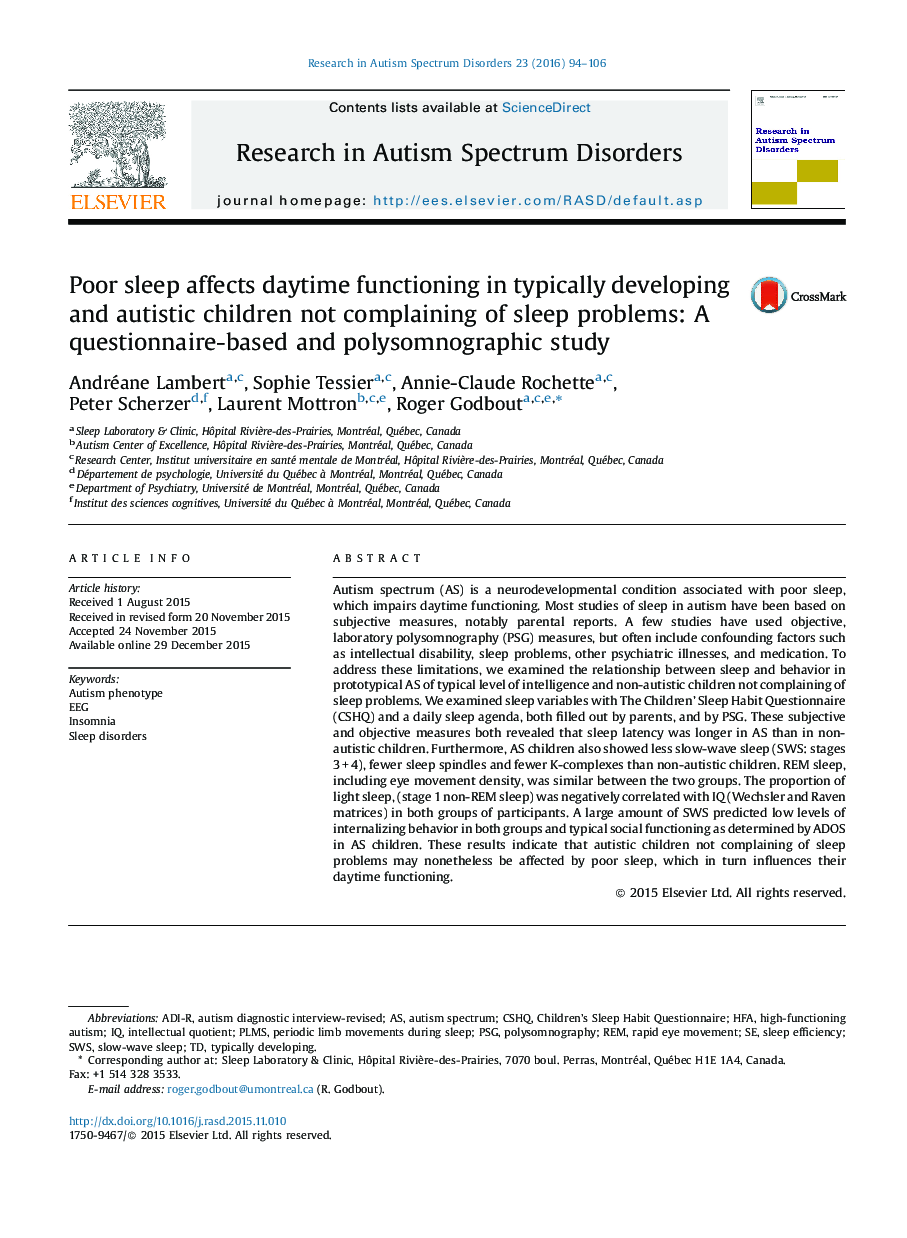| کد مقاله | کد نشریه | سال انتشار | مقاله انگلیسی | نسخه تمام متن |
|---|---|---|---|---|
| 369969 | 621831 | 2016 | 13 صفحه PDF | دانلود رایگان |
• Light sleep correlates negatively with IQ in typically developing and autistic children.
• Autistic children without sleep complains show long sleep latency on sleep diaries and polysomnography but not on sleep habit questionnaires.
• Autistic children show less slow wave sleep than neurotypical children.
• Less slow wave sleep correlates with more autistic symptoms.
• Sleep protecting mechanisms like sleep spindles and K-complexes are impaired in autistic children.
Autism spectrum (AS) is a neurodevelopmental condition associated with poor sleep, which impairs daytime functioning. Most studies of sleep in autism have been based on subjective measures, notably parental reports. A few studies have used objective, laboratory polysomnography (PSG) measures, but often include confounding factors such as intellectual disability, sleep problems, other psychiatric illnesses, and medication. To address these limitations, we examined the relationship between sleep and behavior in prototypical AS of typical level of intelligence and non-autistic children not complaining of sleep problems. We examined sleep variables with The Children’ Sleep Habit Questionnaire (CSHQ) and a daily sleep agenda, both filled out by parents, and by PSG. These subjective and objective measures both revealed that sleep latency was longer in AS than in non-autistic children. Furthermore, AS children also showed less slow-wave sleep (SWS: stages 3 + 4), fewer sleep spindles and fewer K-complexes than non-autistic children. REM sleep, including eye movement density, was similar between the two groups. The proportion of light sleep, (stage 1 non-REM sleep) was negatively correlated with IQ (Wechsler and Raven matrices) in both groups of participants. A large amount of SWS predicted low levels of internalizing behavior in both groups and typical social functioning as determined by ADOS in AS children. These results indicate that autistic children not complaining of sleep problems may nonetheless be affected by poor sleep, which in turn influences their daytime functioning.
Journal: Research in Autism Spectrum Disorders - Volume 23, March 2016, Pages 94–106
